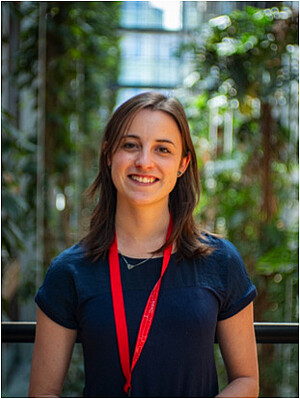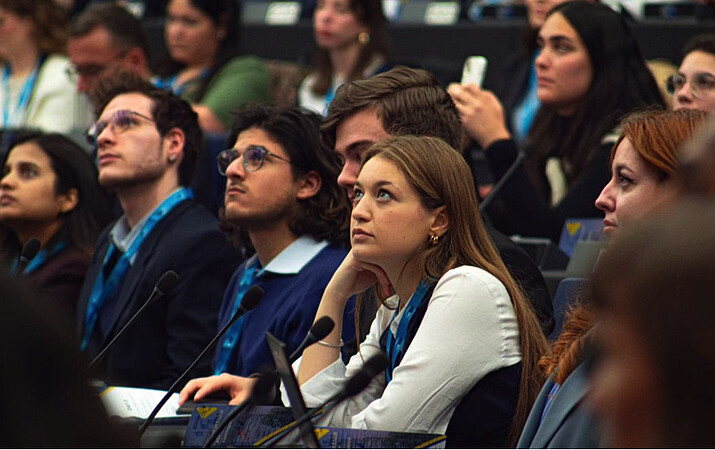During the 3rd edition of the European Student Assembly (ESA), held from April 10th to 12th at the European Parliament in Strasbourg, over 250 students from European university alliances adopted 79 political recommendations drafted by eleven panels. An event organised by the EUC Voices Erasmus Project!

Mohammad Khari is studying cognitive science at the University of Amsterdam, a member institution of the EPICUR alliance.
For his first participation in the ESA, he served as one of the two coordinators of Panel 4 on the theme “What strategy should the European Union (EU) adopt to ensure dignified treatment for migrants coming from outside the Union?”
Why did you choose to engage in this project?
When I saw that registration was open for the ESA, I immediately got involved in this initiative. I had read the recommendations from the previous edition and thought it was a very welcoming place to actively engage.
Engaging in discussions with students from different universities, who bring their knowledge and can suggest meaningful changes, greatly appealed to me. This assembly serves as a beautiful bridge between the academic world and the procedures for shaping European policies.
What was your role in preparing for the ESA?
As a coordinator, we work in pairs to organize each panel. There are different phases involved.
The first phase, conducted online, involves arranging meetings to discuss various issues and topics. As coordinators, we have the opportunity to participate in discussions and invite experts in relevant fields to give presentations, which greatly enriches the debate. Therefore, it was our responsibility to find competent individuals who were available and willing to support us by providing online sessions. We had to organize these sessions, moderate the meetings, and draft recommendations ahead of the meetings in Strasbourg.
We also had the time and opportunity to conduct extensive background research. Many panel members, including myself, were not well-versed in recent legal developments and policy decisions. Therefore, we had to study numerous existing decisions and texts related to migration and asylum, which were the primary focus of our panel.
The next phase, which will commence after the event in Strasbourg, is the dissemination phase. Firstly, this is beneficial because it allows us to remain active in the process. It’s up to students and coordinators to engage with politicians, elected officials, or influencers, and spread the word through initiatives or at other universities. The initial step is to spread the news. Some student groups focus on dissemination activities.
This is valuable because students’ voices are not often heard in the news and are rarely listened to in debates. The second objective is to translate our recommendations into future policies.
Specifically, our group aims to find ways to better treat asylum seekers and migrants in terms of human rights and provide them with an environment that enhances their treatment with respect. We also aim to facilitate their integration into the EU, once they are on the territory, for a better life.
***

Annika Breuer is studying political geography and French studies at the University of Mainz, within the Forthem alliance. This is her second time participating in the ESA.
How is this edition different from previous ones?
One difference I noticed this year is that decision-makers are now directly participating in the debates, as was the case with Yann-Maël Bideau from the European Commission. We can see that the event is gaining importance at this level. It shows that decision-makers, as well as Commission members, acknowledge that we want to be part of the debate. Our ideas will be read. Even if our ideas are not fully developed as conceived here, they will be present in the minds and might be integrated into the European debate.
In this election year, we can capitalize on the momentum to further amplify the reach of our ideas. Therefore, we will actively support students in disseminating the recommendations within their universities and beyond.
“How do you see the evolution of the event?
The ESA is a project led by students and for students. At the end of each edition, we conduct surveys to analyze the event with them and include them in the improvement process. Therefore, with the ideas and suggestions of participants, we try each year to enhance the conference, to have a greater impact on political debate.
Follow the ESA on LinkedIn to discover the initiatives and events students are involved in to promote their recommendations

